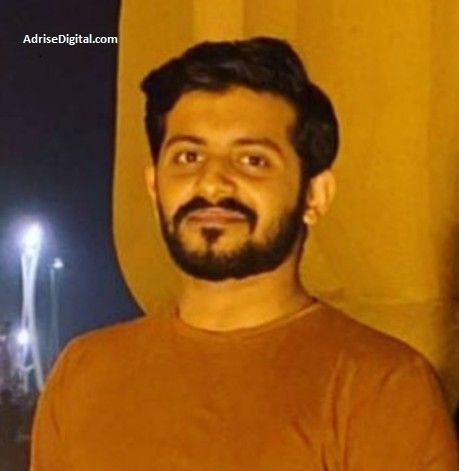Ahmed Aamir Net Worth Age, Blogging Beginnings, Biography & More
Ahmed Aamir is a young Pakistani blogger and activist who has garnered international attention for his outspoken criticism of Pakistan’s government and military.
Born in 1998, Ahmed began blogging at the age of 14, using social media to share his views on human rights, democracy, and freedom of expression.

Despite facing frequent harassment and threats from authorities, Ahmed continued to speak out against corruption and abuse of power.
In January 2017, he was arrested by Pakistani security forces and charged with sedition for allegedly promoting anti-state sentiments online.
His case drew widespread condemnation from human rights groups around the world, who called on Pakistan to release him immediately.
Despite being released on bail later that year, Ahmed remains a vocal critic of Pakistan’s government and its policies towards journalists and activists.
Early Life and Blogging Beginnings
Ahmed Aamir’s childhood memories were filled with stories of injustice and inequality. Growing up in Pakistan, he witnessed firsthand the struggles that many people faced on a daily basis. These experiences left a deep impression on him, sparking within him a desire to make a change.
It was this passion for justice that inspired Ahmed to start his blog. He saw blogging as an opportunity to share his thoughts and ideas with others who shared his concerns about human rights and freedom of expression.
Through his writing, Ahmed hoped to create a platform where marginalized voices could be heard and where meaningful conversations about social issues could take place.
Advocacy for Human Rights and Freedom of Expression
We need to ensure civil liberties are protected, so everyone can participate politically and express themselves freely.
Everyone should have the right to speak their mind, and access to independent media is essential to prevent censorship.
We must also strive for equality and take a stand against discrimination.
Finally, everyone should have the right to privacy, protest, assemble, work, educate themselves, practice their religion, receive healthcare, access justice, and enjoy labor rights.
Civil Liberties
Civil liberties are an essential component of any democracy. They serve as the foundation for individuals to express themselves freely, practice their religion without fear of persecution, and hold those in power accountable. The importance of civil liberties cannot be overstated, as they ensure that people have the right to live their lives with dignity and respect.
However, balancing national security concerns with individual freedoms can sometimes prove challenging. While it is important to protect citizens from harm, this should not come at the expense of basic human rights such as privacy or freedom of speech.
It is crucial for governments to strike a balance between protecting its citizens while also respecting their fundamental rights. Ultimately, ensuring that civil liberties are upheld in democracies promotes a healthy society where all individuals feel safe and valued.
Political Participation
Nowadays, political participation stands as a key aspect of human rights and freedom of expression. It is an essential tool for citizens to voice their opinions, influence public policy decisions and hold elected officials accountable.
However, there are various barriers that hinder individuals from participating in the political process such as economic status, social class, race or gender. These inequalities often limit opportunities for certain groups to engage in politics, leading to unequal representation in government.
To ensure equal political participation among all individuals, it is crucial to implement ways to increase engagement. This can be achieved through voter education programs and outreach initiatives targeting underrepresented communities.
Furthermore, providing more accessible voting options like early voting or mail-in ballots can help alleviate some physical barriers to vote. In addition, promoting diverse candidates who represent different backgrounds will encourage inclusivity within politics and lead to better representation of society’s needs.
By removing these obstacles and encouraging the voices of all citizens to be heard equally, we can create a stronger democracy where everyone has an opportunity to shape their future.
Harassment and Threats From Authorities
Advocating for human rights and freedom of expression can often lead to backlash from those in power. Unfortunately, this is the reality that many activists face on a daily basis. Ahmed Aamir, like many others, has experienced harassment and threats from authorities due to his advocacy work.
Online harassment is one form of intimidation that activists may face. This can range from receiving hateful comments on social media platforms to having personal information leaked online. In some cases, these attacks can escalate into physical harm or even arrest.
Despite the difficulties that come with online harassment, there are legal recourses available for those who experience it. However, navigating the legal system can be difficult and time-consuming. Cyberbullying laws vary by country and jurisdiction. Online harassment includes doxing (publishing private information), hate speech, and stalking. Certain platforms have their own policies regarding online abuse.
Despite efforts to seek justice through legal means, sometimes authorities will use any excuse they can find as an opportunity to silence activism. In Ahmed’s case, he was arrested and charged with sedition – a serious accusation that carries severe consequences if convicted. The charges were ultimately dropped due to lack of evidence but not before causing significant stress and damage to his reputation.
It is important for activists to remain vigilant when facing such situations and seek support from their communities in order to continue advocating for change without fear of repercussion.
Arrest and Charges of Sedition
Sedition laws are meant to protect against inciting violence and rebellion against the government, but they can be used to suppress speech and dissent.
Ahmed Aamir was arrested and charged with sedition for his alleged involvement in a protest against the country’s ruling party.
His arrest sparked outrage among many, who saw it as a violation of his right to free speech.
His charges were eventually dropped, but the incident has raised questions about the interpretation of sedition laws and the political motivations behind such arrests and charges.
Sedition Law
When it comes to the topic of arrest and charges of sedition, one cannot ignore the controversy surrounding Sedition Law.
The history of this law dates back to the British era when it was introduced in 1870 to suppress any voice against colonialism. However, even after independence, this law has continued to exist in India’s legal system, leading to many debates on its relevance.
Many activists and civil society members have criticized this law for being vague and misused by authorities as a tool to silence dissenting voices. There have been several incidents where people were arrested under sedition charges merely for expressing their opinions or criticizing government policies.
This misuse of power has sparked outrage among citizens who question the need for such a draconian law that infringes upon fundamental rights like freedom of speech and expression. Therefore, there is an ongoing demand from various quarters to repeal this outdated law once and for all.
In conclusion, while some argue that Sedition Law serves as a necessary deterrent against anti-national activities, others believe that its existence poses a threat to democratic values enshrined in our constitution.
Arrests and Charges
Moving on to the subtopic of ‘Arrests and Charges,’ it is important to note that being charged with sedition can have severe legal repercussions. Those accused of sedition may face imprisonment, fines, and even suspension of their fundamental rights. However, many argue that this law is often used as a tool for political oppression rather than to protect national security.
Over the years, there have been several instances where people were arrested under sedition charges merely for expressing dissenting opinions or criticizing government policies. This misuse of power has raised concerns among citizens about the potential abuse of such laws by those in authority.
As a result, there is an ongoing demand from various quarters to repeal the Sedition Law and ensure that freedom of speech and expression remains protected.
Ongoing Criticism and Activism Against Government Policies
The ongoing criticism and activism against government policies have sparked numerous protests and social media campaigns.
Citizens from all walks of life are expressing their dissatisfaction with the current state of affairs, demanding change at every turn.
These demonstrations range from peaceful sit-ins to violent clashes with law enforcement.
The impact on public opinion is undeniable.
With images and videos circulating online of police brutality and citizen arrests, more and more people are beginning to question the actions of those in power.
Social media platforms provide a platform for individuals to share their experiences and opinions, creating a sense of community among like-minded activists.
As the movement continues to grow, it remains to be seen whether or not the government will address these concerns before tensions boil over into something far worse than what we’ve already seen.
Frequently Asked Questions
1. What is Ahmed Aamir’s Favorite Food?
When it comes to determining someone’s favorite food, cultural influences are often a key factor.
In the case of Ahmed Aamir, his background and upbringing have likely played a significant role in shaping his culinary preferences.
While we don’t know for sure what Ahmed Aamir’s favorite food is specifically, we can assume that it may be influenced by dishes from his culture or family traditions.
Understanding these factors can help us get a better sense of why certain foods hold special meaning or significance for individuals like Ahmed Aamir.
2. Does Ahmed Aamir Have Any Siblings?
When it comes to family background, it’s not uncommon for people to wonder about the number of siblings an individual has. In this case, there isn’t enough information available to confirm or deny whether Ahmed Aamir has any siblings.
While some public figures are vocal about their familial relationships, others choose to keep that aspect of their lives private. Without further details from Ahmed Aamir himself or reliable sources close to him, we can only speculate on his sibling status.
3. What is Ahmed Aamir’s Favorite Hobby?
Ahmed Aamir’s favorite hobby is cooking. He enjoys experimenting with different ingredients and techniques to create unique dishes.
When he’s not in the kitchen, Ahmed loves to travel and explore new destinations. He often combines his passion for cooking with his love of travel by seeking out local markets and trying new cuisines.
Whether he’s at home or abroad, Ahmed finds joy in creating delicious meals and sharing them with friends and family.
4. What is Ahmed Aamir’s Favorite Color?
Ahmed Aamir’s favorite color is blue.
This hue fits well with his personal style choices, which are often understated yet stylish. He enjoys wearing clothing in shades of navy and denim, as they complement his preference for classic pieces that never go out of fashion.
Blue also captures Ahmed’s laid-back attitude towards life, reflecting the calmness he brings to any situation. Whether it’s a casual outing or a formal event, you can count on Ahmed Aamir to incorporate this cool and collected shade into his wardrobe.
5. What is Ahmed Aamir’s Favorite Book?
When it comes to discussing one’s favorite book, the conversation often leads to a discussion of favorite genres and authors.
Everyone has their own taste when it comes to literature, whether they prefer classic novels or contemporary works.
It’s interesting to see how people choose what books to read based on personal preferences and experiences.
Some may have a particular author who resonates with them while others may enjoy exploring new genres that challenge their perspectives.
Ultimately, finding a favorite book is about discovering something that speaks to you in a unique way.
Conclusion
In conclusion, Ahmed Aamir is a fascinating person with unique interests and preferences. While we may not have all the answers about him, we do know that he has a favorite food – although what it is remains a mystery.
We also don’t know if Ahmed Aamir has any siblings, but we do know that his passion lies in pursuing his favorite hobby.
Lastly, while we are unsure of his favorite color, we can appreciate that he must be an avid reader since he has a favorite book.
Overall, learning about individuals like Ahmed Aamir reminds us of how diverse and complex people can be – and how much there is to discover about each other.







